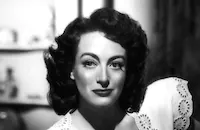West Point

Brief Synopsis
Cast & Crew
Edward Sedgwick
William Haines
Joan Crawford
William Bakewell
Neil Neely
Ralph Emerson
Film Details
Technical Specs

Synopsis
Arrogant and impudent Brice Wayne, a West Point cadet who is a star player on the football team, painfully learns the error of his ways when, after a year, he realizes that he hasn't acquired the proper school spirit. Dismissed from the football team shortly before the Army-Navy match, Brice resigns from the Military Academy, then retracts when his friends Tex McNeil and Betty Channing encourage him to stay. Restored to the team, Brice scores the decisive goal in the game with Navy.

Director

Edward Sedgwick
Cast

William Haines

Joan Crawford
William Bakewell
Neil Neely
Ralph Emerson
Leon Kellar
Maj. Raymond G. Moses
Crew
Edward Brophy
Gilbert Clark
Joe Farnham
Ira Morgan
Maj. Raymond G. Moses
Raymond L. Schrock
Raymond L. Schrock
Frank Sullivan
United States Department Of War
United States Military Academy

Film Details
Technical Specs

Articles
West Point (1928)
Shot on location at West Point, the movie teamed Haines with his favorite director, Edward Sedgwick, and became another in a series of hits for the breezy young actor. Among other Sedgwick films in which Haines appeared were Spring Fever (1927, also with Crawford), Slide, Kelly, Slide (1927) and Free and Easy (1930). Although now largely forgotten, Haines (1900-1973) could be called the Tom Cruise of his day, delighting audiences with his ongoing role as a smart aleck who learns the value of teamwork, usually with the aid of a loyal girlfriend. By the beginning of the talkie era Haines was regularly named the movies' No. 1 male box office draw. He and Crawford, who became fast friends, appeared together in several other films including Sally, Irene and Mary (1925), A Slave of Fashion (1925) and The Duke Steps Out (1929).
The ever-youthful Haines continued to be cast as a college boy as he entered his 30s. Homosexual and remarkably open about it, Haines had his career cut short in the early 1930s after allegedly refusing MGM studio head Louis B. Mayer's orders to give up his relationship with his romantic partner, Jimmie Shields. Haines and Shields would remain lovers for 50 years and were dubbed by Crawford as "the happiest married couple in Hollywood." After his acting career was terminated Haines achieved great success as an interior designer, designing projects for Crawford, studio head Jack Warner and Bloomingdales. He also had a reputation as a great entertainer among Hollywood's upper-crust gay set, which included Clifton Webb and George Cukor.
Director: Edward Sedgwick
Screenplay: Joseph Farnham (titles), Raymond L. Schrock (also story)
Cinematography: Ira H. Morgan
Editing: Frank Sullivan
Costume Design: Gilbert Clark
Principal Cast: William Haines (Brice Wayne), Joan Crawford (Betty Channing), William Bakewell ("Tex" McNeil), Neil Neely (Bob Sperry), Ralph Emerson (Bob Chase).
BW-95m.
By Roger Fristoe

West Point (1928)
Quotes
Trivia
Miscellaneous Notes
Released in United States 1928
Released in United States 1928













